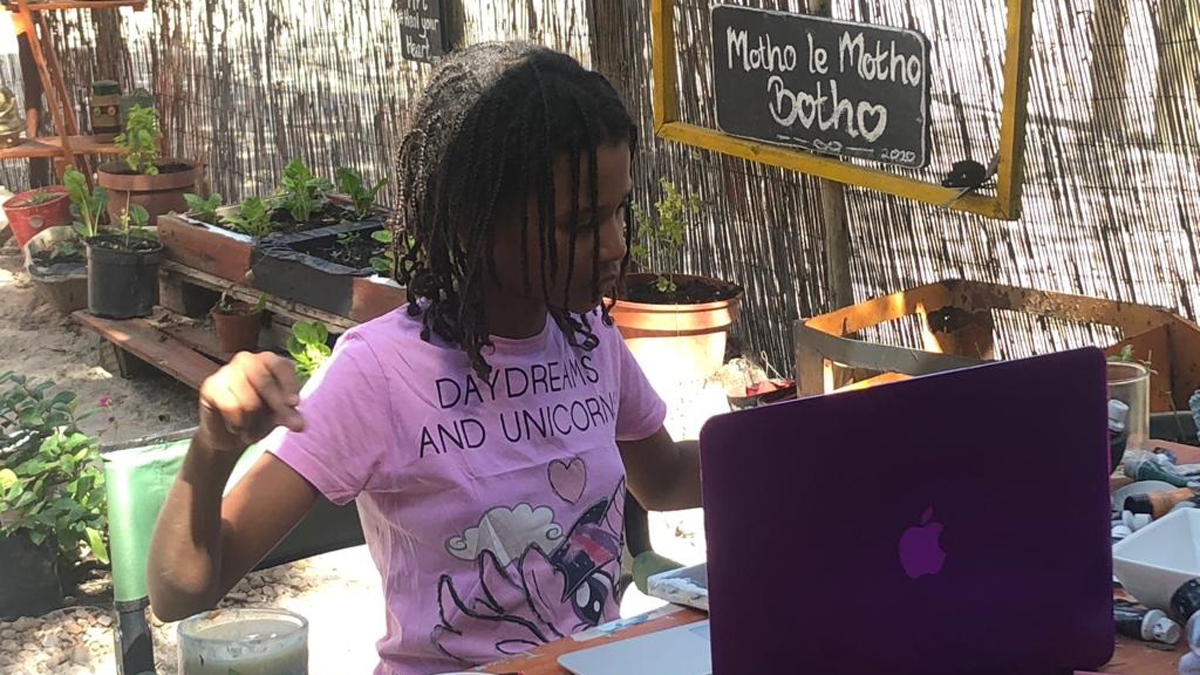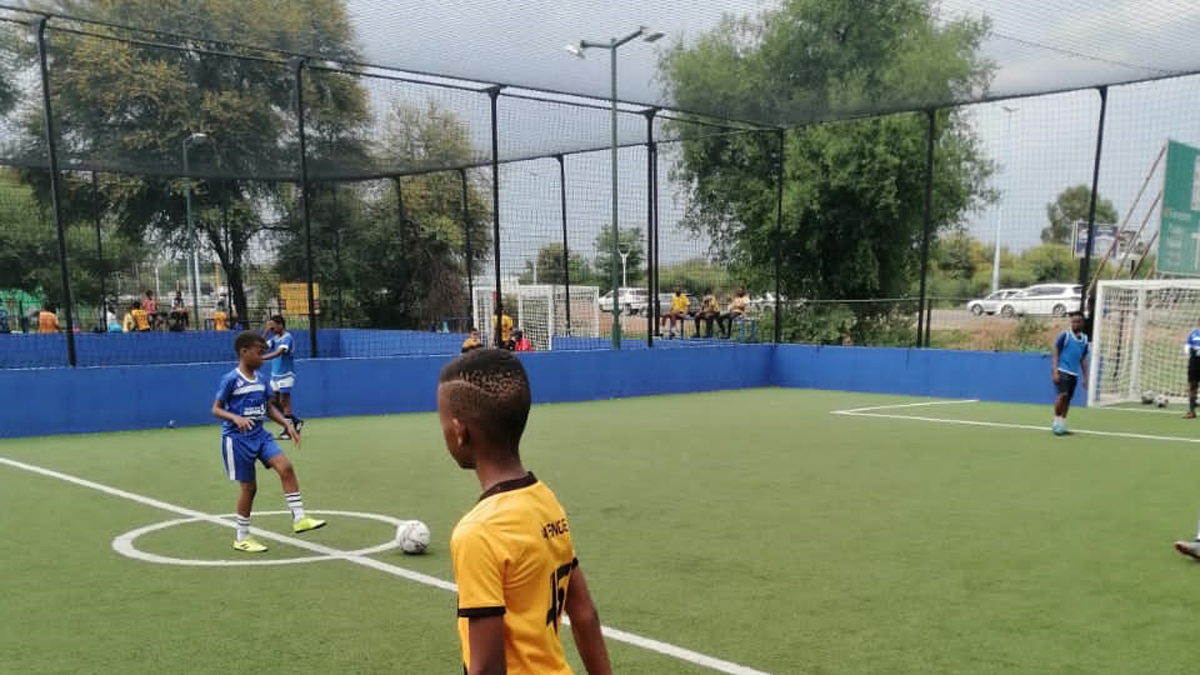Five-time New York Times bestselling author and internationally renowned speaker, Caroline Myss, says, “Choice is a fundamental power of the human experience.”
Homeschooling, which was uncommon in these parts, has since become a viable choice for a growing number of parents who desire the very best for their offsprings.
As the pandemic-induced recession made it impractical for some families to keep children in prestigious schools, a lack of confidence in the quality of education provided by our public education system, however, is one of the reasons for this bold move.
For others, a decision to foster self-determination, a holistic approach to raising well-rounded children, is that basic power of choice Myss alludes to.
Voice Woman speaks to two homeschooling parents: business woman, Tebogo Matenge, as well as Clinical Psychologist, Dr Didi Biorn, who is also a former guidance and counselling teacher.

Founder of AfroBotho – a community and youth development organisation – Dr Biorn, and her husband, who is also a former educator, have been homeschooling their children for a decade.
“We started homeschooling our son in 2012 when we moved from the United States of America (USA). At the time, we were settling in and didn’t really know what we wanted to do in terms of schools. We didn’t have enough information to make a solid decision about which school to select for our son’s education. We hired Mandisa Mabuthoe, who was an assistant teacher at Thornhill, to be our son’s homeschooling teacher,” she explains, adding their need at the time was basic numeracy and reading skills.
Just as his younger sister, the pair’s first-born, who is now in Form 4, had at one point been in mainstream schools.
However, after completing his primary schooling, he requested to receive instruction in his home environment once again.
“Our oldest child, who had been homeschooled and later enrolled at traditional schools (Westwood and Matshwane), asked us if he could go back to homeschooling for Form 1. He preferred the pace and one-on-one support he got from homeschooling. Our youngest had never been homeschooled, but started when she was in Standard 3 following an incident at school where she felt her teacher was shaming her for her different learning style (she is dyslexic). So, we have been homeschooling her since 2018.”
When the pandemic hit in 2020, unlike most learners, the Boro (Maun) couple’s children remained unaffected by the in-person learning disruptions brought on by lockdowns and curfews, and the accompanying anxiety experienced in traditional settings.
“Once lockdowns started in 2020, our kids had already been homeschooling for several years, so they were largely immune to the stress, fear, and uncertainty felt by their age mates in formal school settings.”
Unsurprisingly, the unconventional parents firmly believe that children’s wellbeing is paramount; hence the kids have always responded well to tailor-made learning.
“We use multiple pathways for learning suited to their individual learning styles. For us, learning happens everywhere, not just in the classroom. Our focus has been on emotional and social learning. Given that we live in the rural areas, there are plenty of opportunities for them to learn life skills. They have participated in building our house, reforestation, and many more rural living day-to-day functional activities that most children don’t have access to. Our focus has not been entirely on academic performance, as we are more concerned on raising beings that can thrive in the world. We are raising emotionally balanced children who know how to discern what is important for themselves and to think critically about problems rather than memorising correct answers. They participate in the family’s decision making, as well as provide input on business development and operations. We are also being guided by their personal interests and focus our support on ensuring they learn what they are most passionate about.”
Dr Biorn says the biggest benefit of homeschooling besides avoiding the hefty price of private education is that they get to spend so much more time with the children.
“We cannot even put a cost to that. That we are able to be present to their development is priceless, and the opportunity to guide them has been worth the decision to homeschool. They are currently in the U.S. for 4 months, and so have access to other stimulating experiences. This, we are able to do because the classroom can be anywhere,” she says, and adds that as former educators (English, Art and Guidance and Counseling teachers), they were being responsive to the needs of their children.
“Our biggest motive has been to raise well-balanced children who are able to think critically, problem solve, and follow their passions.”
One might worry about homeschooled kids’ socialisation as the classroom goes beyond merely grasping academic content, Dr Biorn responds, “The generations we are raising are all socialising virtually already anyway, so despite living off-grid and in a rural setting, our kids are able to stay connected with friends from across the globe. We also keep them connected with other children through camps, and extra-curricular activities.
So, what’s a typical homeschooling day like? The off-grid mum says they ensure the kids’ flexibility of schedule, at the same time hold them accountable to demonstrating proficiency: “We teach our children that learning is a continuous, lifelong activity that never stops, rather than something only done in a traditional school setting. The Internet has made knowledge open-source; so we take full advantage of the many free learning websites and curriculums. In general, we have them spend their mornings practising reading, writing and Mathematics when their focus and attention is highest. Afternoons are typically spent pursuing their interests, and evenings they usually socialise online with friends.”
Gaborone-born Tebogo Matenge has been homeschooling her kids for two years and shares that three reasons – affordability, individualised learning and convenience – made it the more sensible option owing to the government-imposed Covid-19 safety protocols: “My husband and I are both self-employed so, when Covid hit, we found ourselves unable to afford school fees any more. We were paying P36k for two of my children – at the time in Standard 3 and 5 at Thornhill. You will recall that there were so many interruptions throughout the Covid period where whenever a student had Covid, the entire class would go into quarantine and kids would spend so much time out of school, yet the fees remained the same. There were no extracurricular activities throughout that period, so we realised we were paying a lot of money for less. To an extent we felt cheated,” says the mother-of-four.
Although the respected private school conducted classes online, she and her husband were also spending a lot of time helping their lads.
She says prior to the advent of virtual learning, she’d never questioned the quality of education her children were getting.
“I realised the current teaching system is very different in comparison to my schooling, our era: what I knew and was capable of at that age. I discovered just how little they knew and less motivated my kids were and felt like we should be getting more out of what we’ve been putting in.”
A product of private schools herself, Matenge says if she had the money, she’d still choose private schools even though her wish is that things were a little different as the current ‘one-size-fits-all approach’ is not ideal, “I think we were paying more for the experience. My boys are unique from each other thus I believe their education should be customised to suit their individual interests and needs. I know it’s wise to expose them to a vast array of subjects, and I agree with that, but when you notice that one is more inclined towards the sciences, you can do a bit extra in that area.I don’t want my kids to go to government school. Private schooling is attractive for the myriad activities on offer, but my kids aren’t missing out educationally, so we were paying for the experience really.”
She says initially they worried about the boys’ social skills, “During the era of strict protocols, yes, but once things started opening up, they went back to their soccer and other activities; four times a week. I think the only thing they miss is interschool competitions but, even so, they still have leagues.”

The doting mum, whose eldest sons are in Standard 7 and 5 – currently helped by Prismart Learning and Tuition Centre – says they plan to enroll their 12-year-old into the University of Cape Town Online High School as he is an introvert who enjoys homeschooling.
“Unlike his younger brother, who is more sociable, he loves it!” she says, before directing me to the kids’ teacher, Prisca Mukupa.
Mukupa, has been offering Standards 1 to 7 homeschooling classes since 2019 after having worked in both private and public schools for 19 years.
She says her students respond to learning more positively and effectively as they are in smaller groups of almost one-on-one, as attention is given to individual learners according to their abilities.
“In such small groups, learners express themselves more freely to the teacher and so identifying their academic challenges becomes easier and appropriate interventions are sort for the benefit of the learner. Subject content is also covered fully as learners are in small groups, which gives a lot of time for intensive practice or revision of learned concept,” she says.
The Zambian-born teacher says that on a typical day, they have routines that start with reading aloud, poems, and storytelling, completing memory work such as math facts or poetry, listening to music or creating art.
“Thereafter, we dive into the main activities that require more focus such as math computations, Science Concepts, English Grammar, Social Sciences (Social Studies etc.). This is followed by corrections and, lastly, learners are given further tasks for practice after having their lunch break.”





















